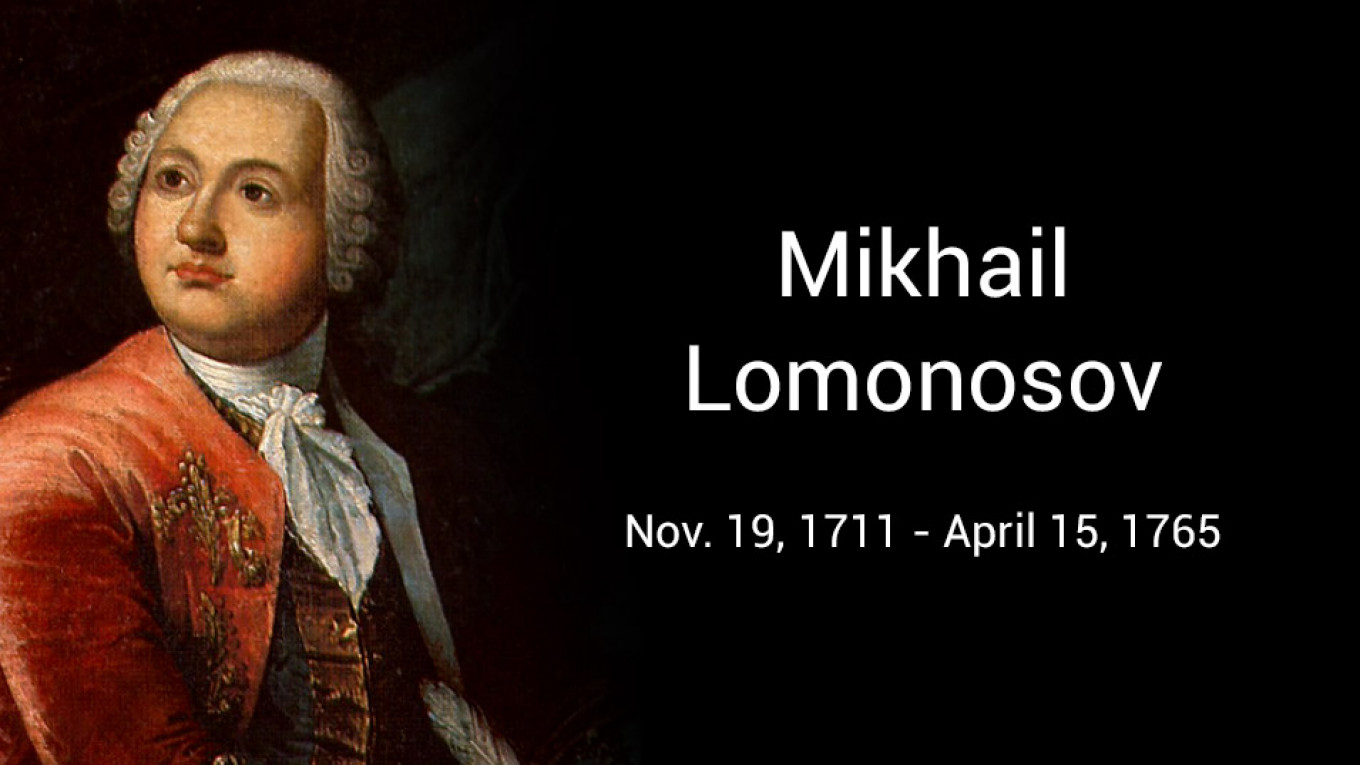
Mikhail Lomonosov was Russia’s most famous and most impressive polymath: a scientist, geographer, writer, historian, poet and grammarian, who was one of the founders of Moscow University. Among his many accomplishments was the discovery of Venus and the law of conservation of mass in chemistry.
The son of a prosperous peasant family in Russia’s far north, he was taught to read by a neighbor and had devoured every book in his village by the age of 19, when he walked to Moscow to attend school. He studied in Moscow, St. Petersburg and Kiev before receiving an Academy of Sciences stipend to study abroad. He spent almost five years studying in Germany at the University of Marburg and then in Freiberg.
In Germany, in addition to mastering the language and studying German literature, he studied philosophy, chemistry, other sciences and theology. He married his landlady’s daughter, Elizabeth Zilch, and returned with his young family to Russia in 1741.
Lomonosov became an adjunct professor at the Russian Academy of Sciences in the physics department and, after a period of imprisonment for insulting his peers at the Academy, he was returned to his home and work and in 1945 was made a full member of the Academy and professor of chemistry.
A decade later, he and Count Ivan Shuvalov founded Moscow University, which now bears his name.
Lomonosov made many discoveries in physics, astronomy, geology, chemistry, geography, and even linguistics. He wrote a grammar combining Old Church Slavonic and vernacular Russian, which simplified and unified the literary language. He wrote poetry and a history of Russia. In the last years of his life, he received many honors, including being elected a Foreign Member of the Royal Swedish Academy of Sciences and a Foreign Member of the Academy of Sciences of the Institute of Bologna. In 1764 he was made State Councilor, a high rank in the Russian Empire. He died in 1765 in St. Petersburg and is buried in the Alexander Nevsky Cemetery.
Among his many celebrated accomplishments is his description of the Russian language: “Russian has the “grandeur” of Spanish, the vivacity of French, the strength of German, the gentleness of Italian, and in addition to that, the wealth and brevity of ancient Latin and Greek…”






